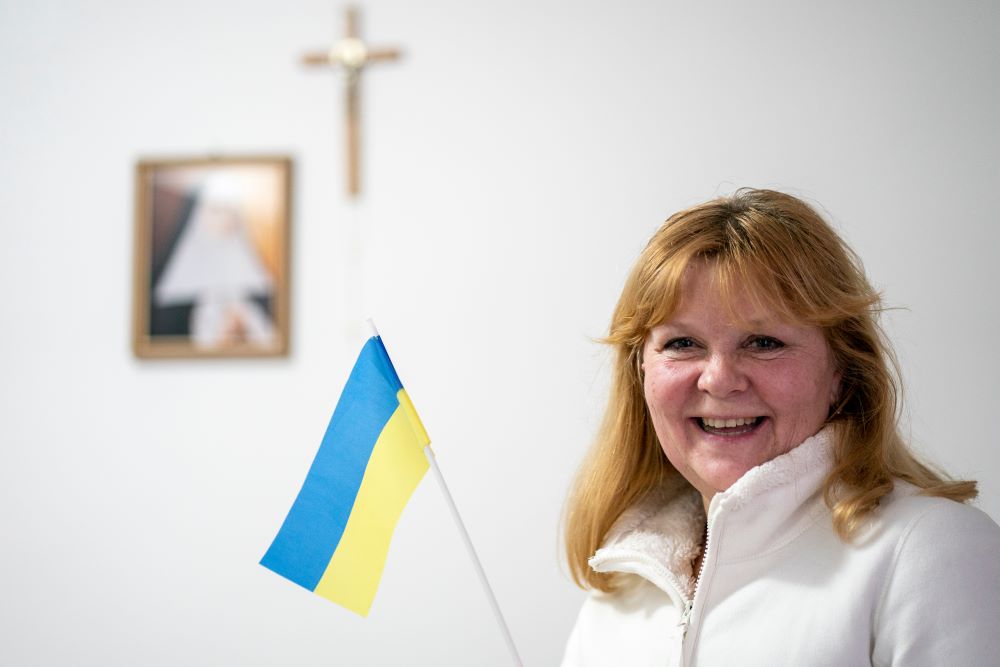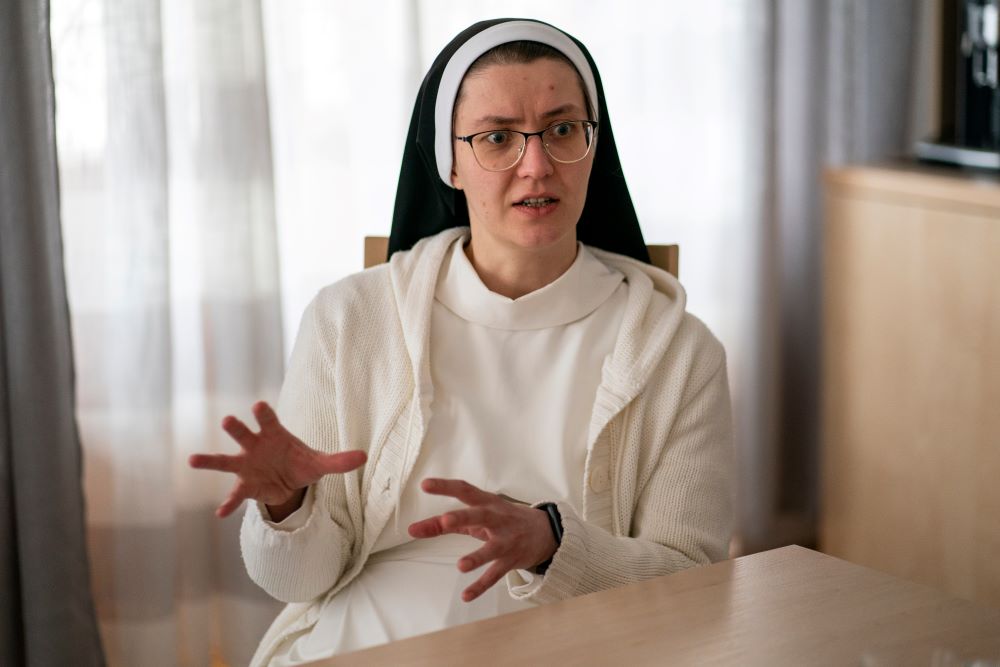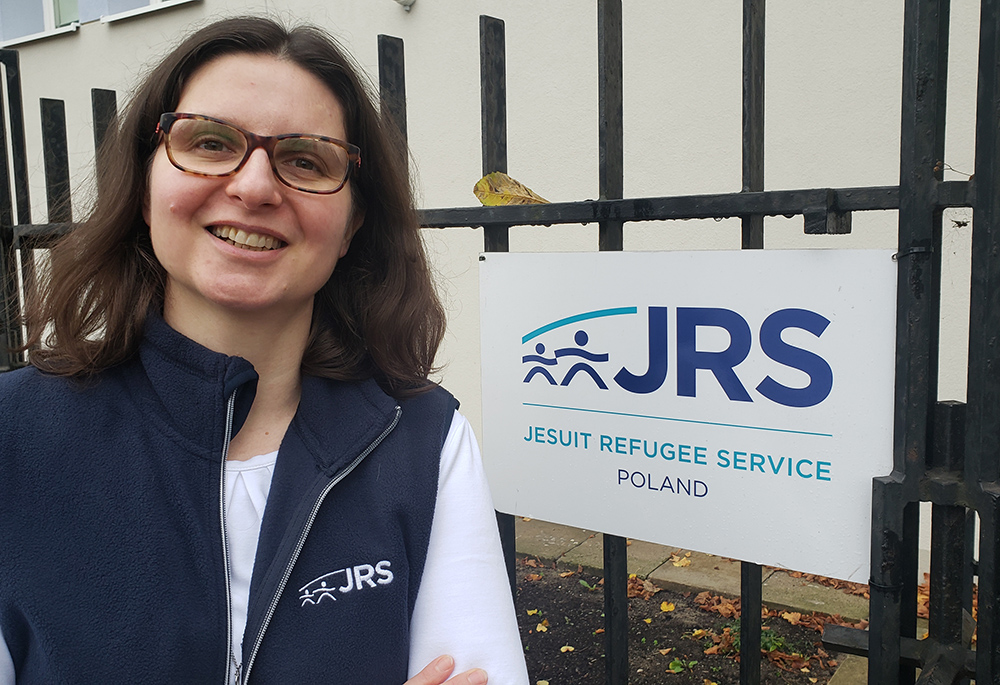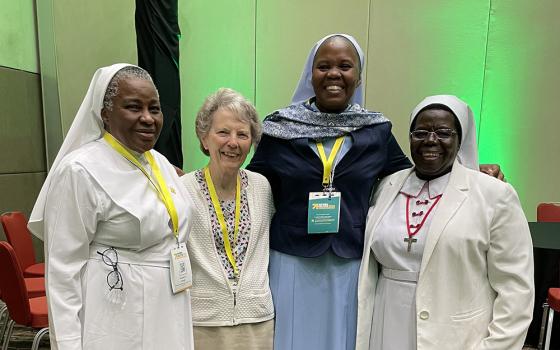
Svitlana Kruchynska, a refugee from Melitopol, Ukraine, left her home just as the Russian invasion began on Feb. 24, 2022. She crossed the border into Poland with her daughter Ruslana on March 1, and eventually moved into a residence owned by Dominican sisters in Krakow, Poland. (Gregg Brekke)
If there is any group I have come to admire in the last year, it is Ukrainian women.
In the face of the full-scale Russian invasion of their country, they have shown unparalleled resilience and fortitude against considerable odds, both within and outside Ukraine.
They have done this by being steadfast and keeping hope alive; maintaining family ties even in the midst of long separations — many have left husbands and family in Ukraine — and believing that a better moment for Ukraine will come.
Today is an appropriate moment to honor those women because June 20 is World Refugee Day, an annual United Nations-led commemoration designated by the world body "to honor refugees around the globe."
The day "celebrates the strength and courage of people who have been forced to flee their home country to escape conflict or persecution," the United Nations Refugee Agency notes.
In the last year-plus, I have been fortunate in assignments to Ukraine and Poland — as well as my home base in New York — to meet with Ukrainian refugee women and to hear their experiences.
I've probably met close to a dozen women, and the one I have stayed in closest touch with is Svitlana Kruchynska, a refugee from Melitopol, Ukraine, who left her home just as the Russian invasion began on Feb. 24, 2022.
She crossed the border into Poland with her daughter Ruslana on March 1, and eventually moved into a residence owned by Dominican sisters in Krakow, Poland. This happened thanks to a Caritas volunteer at the Polish-Ukrainian border who contacted the Dominican sisters.

Dominican Sr. Kazimiera Korzeniewska is among the Dominican sisters hosting Ukrainian refugees in Krakow, Poland. Thirty-one people lived at the residence — located across the street from the Dominican sisters' convent — at the height of the initial influx of refugees in the winter of 2022. (Gregg Brekke)
Thirty-one people lived at the residence — located across the street from the Dominican sisters' convent — at the height of the initial influx of refugees in the winter of 2022. With some bound for other destinations and others returning to Ukraine, those numbers are now down to 10 people, said Dominican Sr. Margaret Lekan.
I first met Svitlana in March 2022, soon after she arrived in Krakow and was settling in. I have seen her twice since then — during an assignment to Poland and Ukraine last November, and in February when I revisited Krakow before returning to Ukraine.
Every time I have met Svitlana, she has been gracious, welcoming and upbeat — though not afraid to discuss her fears and vulnerabilities.
She is also not afraid to cry.
Perhaps the most poignant of Svitlana's observations came when she said in February that the Russians had taken everything away from her and that she was a Cinderella in reverse. "I was once a princess, like Cinderella," Kruchynska said, meaning she had had a good life in Melitopol, a lovely, verdant city known for its cherry trees but that remains occupied by Russian forces.
Interviewed in her small studio residence she shares with her dogs Oscar and Jack, Svitlana still expressed incredulity about the Russian invasion. But at the same time, she seemed to be making peace with her new life — a school librarian in Ukraine, she has been learning Polish, working in Krakow as a housekeeper two to three times a week and as a teacher's assistant at a Montessori school with Ukrainian students.
She has also been teaching religious education and continuing her own theological studies, taking online courses.
"In God, there is hope and help," Svitlana said of her theological studies.
She is in touch daily with her daughter, who decided to return to Ukraine as a member of the armed forces. "It was hard for her to be here while the war continued. She wanted to go back."
Svitlana teared up at the thought of her daughter, who is now stationed in the city of Zaporizhzhia. But the daily calls keep them close.
As for life in Krakow, Svitlana said she likes the city and has made some friends. She certainly appreciates the support of her Dominican hosts. ("We're being good neighbors," Lekan said modestly of the overall Polish response to welcoming Ukrainian refugees.)
At the same time, Svitlana said Poland will never quite be home. "It's not the same," she said.
While she is still hopeful about the eventual liberation of Ukraine and Melitopol, Svitlana recognizes that that is not an immediate prospect. In March of last year, though, she expressed optimism that the war would be over soon and that she would be quickly returning home.
"It will be over in 10 days," she recalled thinking at the time.
That's a common experience, said Dominican Sr. Kazimiera Korzeniewska, one of the Dominican sisters hosting the refugees and who I met in February.

Sr. Urszula Krajewska, an attorney and member of the Religious of the Sacred Heart of Jesus works for Jesuit Refugee Service in Warsaw. She says the warm welcome accorded to Ukrainians by Poles during the start of the war earlier this year "is probably not as enthusiastic as it was initially — people generally got used to having Ukrainian refugees around." (NCR photo/Chris Herlinger)
"It will take time for the war to end. And yet they have still hoped and believed the end will be soon, and they will be able to go back and return to their homes," Korzeniewska said of the refugee experience. "I think it's a way they are trying to save themselves — hoping and hoping, and I think that that hope is keeping them up."
Sr. Urszula Krajewska, an attorney and member of the Religious of the Sacred Heart of Jesus who works for Jesuit Refugee Service in Warsaw, feels similarly.
When I interviewed Krajewska in November, she said the typical response to the question of when refugees want to return home is usually "yesterday."
Groups like Jesuit Refugee Service and sister congregations like Lekan's assist refugees in settling in, help them find some semblance of a new life — even when most refugees can only find unskilled jobs due to language limitations — and "work to give them some hope."
Yet the dynamic of hope is tricky, Krajewska said, because the situation in Ukraine has completely altered and hopes of returning to life as it was are dim. (I have heard the same sentiments expressed by a Ukrainian family now living on Long Island, New York. The world they knew, they said, doesn't exist anymore.)
One refugee told Krajewska, "I buried my mother at the beginning of the war. My home was destroyed. I have nothing to go back to."
Fortunately, Svitlana does have a life to return to eventually — she has her daughter and other family that still live in Ukraine.
Advertisement
And Svitlana is not alone. At a March 8 meeting held on International Women's Day during the United Nations Commission on the Status of Women, Ukrainian women and their supporters met to discuss how Ukrainian women have fared in the last 16 months since the Russian invasion.
Among the topics: preliminary results of a survey conducted by the National Council of Women of Ukraine which found that 44% of respondents had experienced Russian shelling; one in five respondents were internally displaced within Ukraine; and nearly half — like Svitlana — had left the country and were refugees.
The overwhelming number of the 8 million refugees from Ukraine are women and children.
"We are Ukrainian women," Lyudmyla Porokhnyak. the president of the National Council of Women of Ukraine, told the gathering. "We fight, volunteer, save families, protect children and more."
They are like Svitlana — courageous women doing their best in the most difficult of circumstances. On World Refugee Day, we should honor them.








